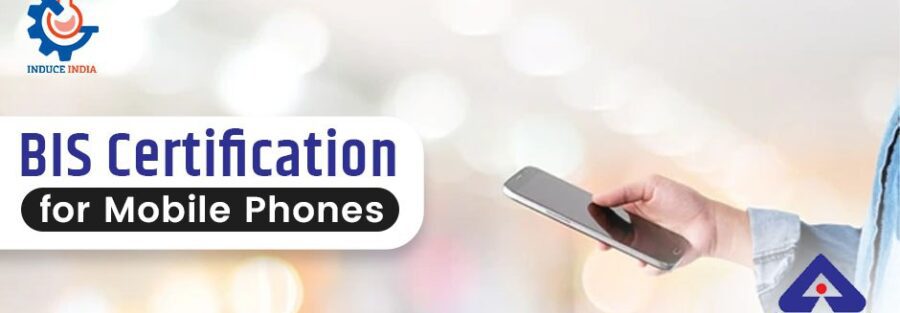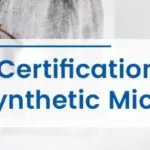What is BIS Certification?
BIS Certification refers to the process of certifying products or services to the standards set by the Bureau of Indian Standards (BIS). The BIS is a national standards body in India, established under the Bureau of Indian Standards Act, 1986, and operates under the Ministry of Consumer Affairs, Food and Public Distribution, Government of India.
The BIS sets various standards for products and services, which are aimed at ensuring quality, safety, and reliability. BIS Certification is a voluntary certification scheme, but it is mandatory for certain products and services, such as electronics and IT goods, toys, medical equipment, and certain household appliances, to carry the BIS certification mark.
The certification process involves testing the product or service for compliance with the relevant BIS standards and ensuring that it meets the necessary quality and safety requirements.
Once the product or service has been certified, it can carry the BIS certification mark, which signifies that it has been independently verified and meets the required standards.
BIS Certification is important for businesses that want to demonstrate their commitment to quality and safety, and for consumers who want assurance that the products and services they use are reliable and safe.
Who grants a BIS Certificate in India?
BIS (Bureau of Indian Standards) Certificate in India is granted by the Bureau of Indian Standards, which is the national standards body of India. It operates under the Ministry of Consumer Affairs, Food and Public Distribution, Government of India. The BIS is responsible for formulating and enforcing standards for goods and services to ensure their safety, quality, and reliability.
The BIS has a network of laboratories across the country that carry out testing and certification activities for a wide range of products and services.
These laboratories are accredited by the National Accreditation Board for Testing and Calibration Laboratories (NABL), which is an autonomous body under the Department of Science and Technology, Government of India.
To obtain a BIS Certificate, manufacturers or service providers must submit their products or services for testing and evaluation to one of the BIS-recognized laboratories. If the products or services meet the relevant BIS standards and requirements, a BIS Certificate is issued, which enables the product or service to carry the BIS certification mark.
BIS Certification Cost In India
The cost of BIS (Bureau of Indian Standards) certification in India can vary depending on several factors such as the type of product or service being certified, the number of samples tested, the complexity of the testing required, and the duration of the certification process.
The fees for BIS certification are typically charged in two parts: the testing fees and the certification fees.
The testing fees cover the cost of the product or service testing, while the certification fees cover the cost of the certification process and the issuance of the BIS certificate.
The testing fees can range from a few thousand rupees to several lakhs of rupees depending on the type and complexity of the testing required. The certification fees are generally charged based on the product or service category and can range from a few thousand rupees to several tens of thousands of rupees.
It is important to note that BIS certification is a voluntary certification scheme, but certain products and services must carry the BIS certification mark before they can be sold in the Indian market. Therefore, businesses should consider the cost of certification as part of their product or service development and marketing strategy.
Why is it Mandatory BIS Certification For Mobile Phones?
Mobile phones must get BIS (Bureau of Indian Standards) certification before they can be sold in the Indian market because it is a safety and quality measure. The BIS is responsible for formulating and enforcing standards for goods and services to ensure their safety, quality, and reliability.
Mobile phones are categorized as “Electronics and IT Goods” under the Compulsory Registration Scheme (CRS) of the BIS. This means that they must undergo testing and certification to ensure that they meet the relevant BIS standards before they can be sold in India.
The BIS certification process for mobile phones includes testing for electromagnetic compatibility, SAR (specific absorption rate) for radiation levels, and compliance with other safety and quality standards.
This helps to ensure that the mobile phones sold in India are safe for use and comply with the necessary quality standards.
BIS certification also helps to prevent the sale of counterfeit or substandard mobile phones in the Indian market, which can be a safety hazard and can lead to consumer dissatisfaction. Therefore, Mandatory to obtain BIS certification for mobile phones to protect the interests of consumers and ensure that they have access to safe and reliable products.
Documents needed to obtain BIS certificate for import Of smart phones
To obtain a BIS (Bureau of Indian Standards) certificate for the import of smartphones in India, the following documents are typically required:
Authorization letter: An authorization letter from the manufacturer or the brand owner authorizing the importer to apply for BIS certification on their behalf.
Test reports: Test reports from a BIS-recognized laboratory indicate compliance with the relevant BIS standards for the smartphone.
Declaration of conformity: A declaration of conformity from the manufacturer or the brand owner stating that the smartphone complies with the relevant BIS standards.
Brand authorization letter: A brand authorization letter from the manufacturer or the brand owner authorizing the use of their brand name on the smartphone.
User manual: A user manual or instruction booklet for the smartphone in English and/or Hindi.
Certificate of origin: A certificate of origin from the country of origin for the smartphone.
Invoice: An invoice for the smartphone showing the name and address of the importer, the description of the product, the quantity, the value, and the currency.
Import license: An import license issued by the Director General of Foreign Trade (DGFT) or any other relevant authority.
The specific requirements for BIS certification may vary depending on the type of smartphone and the BIS standards that apply. It is advisable to consult with a BIS-recognized laboratory or a BIS certification consultant for more information on the exact documents required for BIS certification.
Process to obtain BIS certificate for import of Smart Phones
The process to obtain a BIS (Bureau of Indian Standards) certificate for the import of smartphones in India typically involves the following steps:
Choose a BIS-recognized laboratory: Identify a BIS-recognized laboratory to conduct the necessary testing on the smartphone to ensure compliance with the relevant BIS standards.
Submit samples for testing: Submit the required number of samples of the smartphone to the chosen laboratory for testing. The laboratory will conduct tests on the smartphone to determine compliance with the relevant BIS standards.
Obtain test reports: Obtain the test reports from the laboratory indicating compliance with the relevant BIS standards for the smartphone.
Apply for BIS certification: By submitting the necessary documents and test reports to the BIS office. The application can be submitted online through the BIS portal or in person at the BIS office.
Inspection of the factory: BIS may also conduct a factory inspection to verify compliance with the relevant BIS standards. This is typically done for first-time applicants or those who are seeking certification for new models.
Issuance of BIS certificate: If the smartphone meets the relevant BIS standards, the BIS will issue a BIS certificate. The BIS certificate will enable the smartphone to carry the BIS certification mark.
Renewal of BIS certificate: The BIS certificate is valid for two years and can be renewed by submitting a renewal application along with the necessary documents and test reports.
It is important to note that BIS certification is mandatory for certain products, including smartphones, to be sold in the Indian market.
Therefore, it is advisable to obtain BIS certification before importing smartphones to India to ensure compliance with the relevant safety and quality standards.
Conclusion
In conclusion, BIS certification is a mandatory requirement for certain products, including smartphones, to be sold in the Indian market. The BIS certification process involves testing the products for compliance with the relevant BIS standards, submitting the necessary documents and test reports, and obtaining the BIS certificate.
BIS certification is a safety and quality measure that helps to protect the interests of consumers and prevent the sale of counterfeit or substandard products in the Indian market.
Therefore, it is advisable to obtain BIS certification before importing smartphones or any other products to India to ensure compliance with the relevant safety and quality standards.



